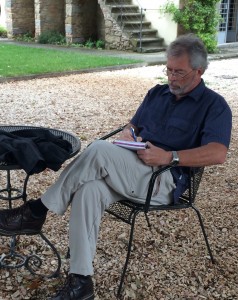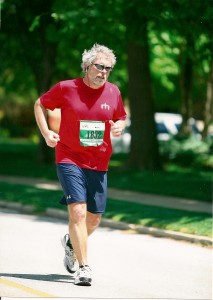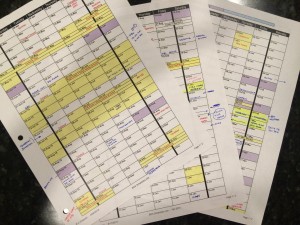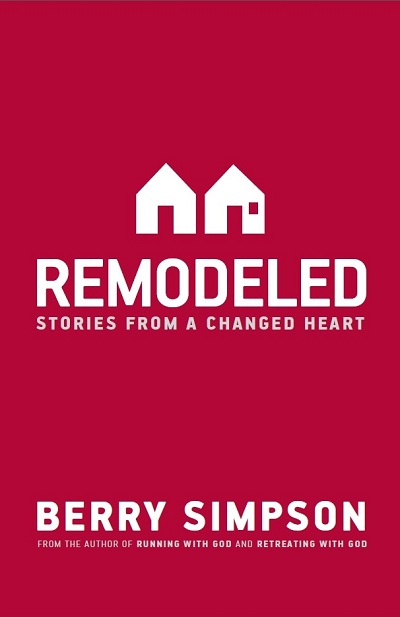“What are you doing early Thursday morning?” asked my Dad. “Are you busy?”
“I’m teaching my Iron Men class at church. It’s our first session of 2016, and we meet at 6:30 AM.”
“OK. I guess you’re busy.”
“Why are you asking?”
“I need a ride to the hospital at 6:00 AM.”
“Can you be more specific?”
“I’m having surgery on my carotid artery. You know the one they’ve all been worrying about because of my high blood pressure. They’re going to do a Roto-Rooter on it.”
“You asked if I was busy before telling me you’re having surgery? Don’t you have that backwards?”
“Well, maybe.”
We had this conversation on our way to Saturday lunch at Rosa’s with Cyndi. Over our enchiladas we worked out a satisfactory plan where Cyndi would drive Dad to the hospital at 6:00 and I would come as soon as I was finished with my class.
I asked, “Have you told your Sunday School class you are having surgery next week?”
“No, I don’t want to be one of those people who have something wrong with them every week.”
“Have you mentioned anything before now?”
“Well, no.”
“I think you’re safe. But you’re going to get into trouble if you don’t mention it. They want to take care of you because they love you. That’s the job of Sunday School classes, to take care of each other.”
“OK.”
 It’s our family way to fly low under the radar, to not complain, to keep our problems to ourselves. Not because we are especially tough or because we are martyrs – we just don’t want to be a lot of trouble. And we don’t need much attention to feel accepted and loved.
It’s our family way to fly low under the radar, to not complain, to keep our problems to ourselves. Not because we are especially tough or because we are martyrs – we just don’t want to be a lot of trouble. And we don’t need much attention to feel accepted and loved.
I had to learn how to let other people take care of me. It took a deliberate change in my thinking to allow people to serve me. It didn’t come naturally. I thought, as a leader and teacher, serving was my job. I was uncomfortable on the other side of service.
Even last summer after knee replacement surgeries I tried doing everything myself before asking Cyndi for help. I don’t think it was because I was so stubborn, but it simply didn’t occur to me that I shouldn’t try it myself first. After all, how else would I learn my own limits?
Cyndi and I have both had to learn to let other people help us. Allowing other people to serve us is a significant part of leadership, a step forward in spiritual maturity. We’ve had to stand down and relax. It hasn’t been easy.
I learned this lesson myself a few years back during a Guadalupe Mountains backpacking trip with David Nobles. It was the first day of the trip and we were carrying our heavy packs up Tejas Trail, which is four miles long and climbs 3,000’ in elevation. For some reason, I started falling apart about halfway up, getting short-winded and faint and sick to my stomach. I was taking way to many long rest breaks, so David hustled up to the top of the ridge, dropped his pack on the ground, then came back to help me carry mine. I had done the same for other men on several occasions, but I’d never needed that sort of help myself. It would have been embarrassing if I hadn’t been so grateful.
Here’s the thing: If all we do in life is carry for others, never allow them to carry for us, that really isn’t relationship. If all we do is give, never receive, we have to wonder about our motives. Are we truly serving the needs of others, or feeding the needs of our own ego? We must be willing to receive if we expect to know the grace of God. Only empty-handed people can understand grace. Only vulnerable leaders can understand grace.
So this morning I visited my Dad about an hour after they finished his surgery, when he was just coming around from the anesthesia. A nurse followed me into the room and said, “Mr. Simpson, I need to take a blood sample.”
“You’ll have to ask the last nurse who was in here. She got the last of my blood.”
That’s another family trait that I learned from my Dad, there is always a joke.
“I run in the path of Your commands, for You have set my heart free.” Psalm 119:32
I need your help. The primary reason people read these articles is because people like you share with friends, so please do. And thank you. Also, you can find more of my writing on my weekly blog, read insights on Tumblr, and follow me on Twitter and Facebook.







 back by a short-sighted employer as I thought, but I’d been set free by God. The promotion, the opportunity, might’ve been a good career move, but it wasn’t right for me. It wasn’t right for the future God had in mind for our family.
back by a short-sighted employer as I thought, but I’d been set free by God. The promotion, the opportunity, might’ve been a good career move, but it wasn’t right for me. It wasn’t right for the future God had in mind for our family.











